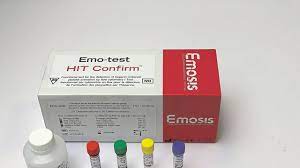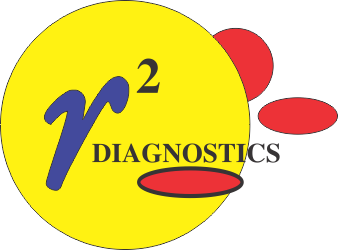HIT Confirm®

Diagnosis of a complication of heparin treatments
(#1 injectable anticoagulant worldwide)
HIT Confirm test kit has been CE-marked in March 2018 for the purpose of helping to establish the diagnosis of Heparin-Induced Thrombocytopenia (HIT). The kit is available for research use only (RUO) in non-CE mark regulated countries.
HIT is a rare, but life-threatening, disorder that is frequently suspected in hospital in-patients treated with heparin (an anticoagulant drug). In HIT, heparin paradoxically triggers severe clotting complications.
Therefore, it is essential that any patient suspected of having developed HIT, and in whom heparin therapy is withdrawn as a precaution, is tested early. If found to be negative, heparin therapy can then be resumed without delay; but if positive, alternative therapies (that are considerably more expensive than heparin) can be initiated straight away.
When suspected, likelihood of HIT is assessed through a four items bioclinical score (4T’s score) leading to HIT screening with immunoassays if 4T’s is moderate or high. While immunoassays are sensitive to detect circulating antibodies targeting a complex made of heparin and a platelet factor (PF4), they cannot state specifically enough whether those antibodies may actually trigger coagulation by activating platelets. To do so, functional assays have to be performed, eventually.
HIT Confirm has been developed by Emosis as a rapid functional assay in a timeframe matching the need of urgent diagnosis, in a much shorter time that the days to weeks required by reference “Gold Standards” to provide results.
HIT confirm is also more sensitive and less methodologically demanding than platelet aggregometry, which is often performed as first line functional assay.
Moreover, the simplicity of the assay allows to repeat it to monitor a still uncertain bioclinical situation, since the potential ability of antibodies to activate platelets may be delayed.
Thanks to the broad availability of flow cytometers in hospitals, HIT Confirm can be easily accessed and performed in most large medical centers. Emosis expects that the new generation of smaller, cheaper compact and automated benchtop flow cytometers which are easier to use by non-specialized cytometrists will broaden the access to such a powerful technology to small and mid-size medical centers.
Go further: Download Leaflet Hit Confirm
